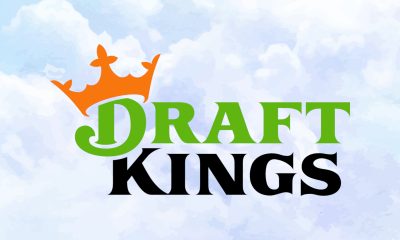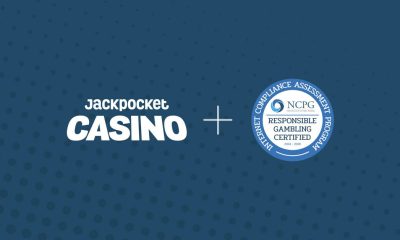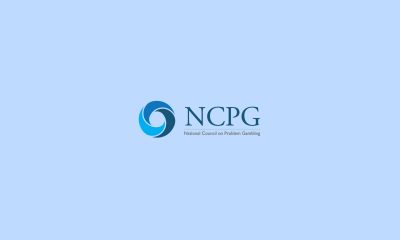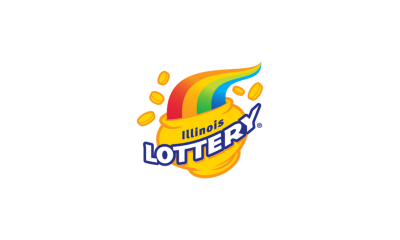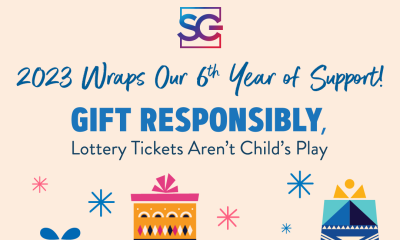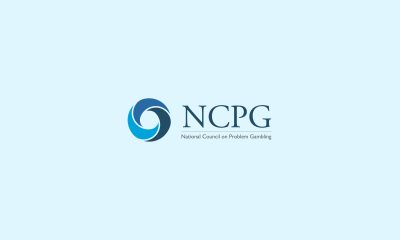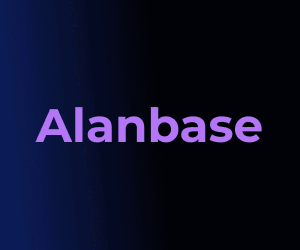Gambling in the USA
NCPG Announces Fall 2023 Grant Recipients

The National Council on Problem Gambling (NCPG) announced the recipients of the Fall 2023 Agility Grants. In this round, a total of $176,000 in funding will be granted to five organizations in support of programs dedicated to advancing problem gambling prevention.
The NCPG Agility Grants serve as a vital resource for nonprofit organizations engaged in problem gambling prevention. The program was established to address service gaps in areas lacking such provisions and to fortify promising endeavors. More than $1 million in funding support will be granted from 2022 to 2024 to establish and enhance problem gambling prevention strategies.
The Agility Grants program is made possible by a multimillion-dollar, multi-year commitment to NCPG from the NFL via the NFL Foundation as part of the League’s responsible betting public awareness campaign. FanDuel provides additional support for Agility Grants.
“Through Agility Grant funding, we aim to foster dynamic and responsive problem gambling prevention programs, helping to ensure that communities across the country are equipped to address this critical need with flexibility and innovation. Each recipient receiving support this round displayed exemplary commitment to cultural competence, tailoring their approaches with sensitivity to the diverse needs of the populations they serve,” Keith Whyte, Executive Director of NCPG, said.
With an emphasis on prevention innovation, collaboration, amplification, and community impact, Agility Grants recipients foster initiatives that can bring about meaningful change in the problem gambling prevention field.
Fall 2023 Agility Grants funding will support the following Prevention Innovation programs:
The Alabama Council on Compulsive Gambling Prevention (ACCG) program, “It’s More Than Just a Game,” will deliver gambling prevention education to middle school students in Alabama. In a classroom setting, students will be individually presented with a series of gambling and video gaming scenarios designed to assess their prevention knowledge. Following the assessment, each scenario and correct answer will be discussed with the entire class, accompanied by educational insights from the ACCG representative. Upon completing the program, students will receive pamphlets about the risks of gambling and the potential warning signs of developing a gambling problem.
The Problem Gambling Coalition of Colorado, in partnership with the Denver Justice High School and the Denver Art Society, will increase awareness and education of problem gambling by delivering the Stacked Deck problem gambling prevention curriculum to high-school students. The project will enhance and reinforce youth engagement in the curriculum by employing art-based activities, workshops and positive reinforcement learning incentives.
Fall 2023 Agility Grants funding will support the following Prevention Amplification programs:
AdCare Educational Institute of Maine, Inc., in partnership with The New England Prevention Technology Transfer Center, will develop a graphic novel about youth gambling prevention to distribute throughout the New England region as part of their Youth Gambling Prevention Graphic Medicine project. Graphic medicine is an evidence-based modality of providing health education and communication through the medium of graphic novels. The toolkit will include the novel and a facilitator’s guide and will be available in English, Spanish and Portuguese.
The LCADA Way will launch the Lorain County Problem Gambling Prevention Initiative to raise awareness about the risks associated with gambling and emphasize positive decision-making skills. The development of campaign materials will be led by teens and designed to engage their peers using a series of social media posts, videos, and other digital media.
Maryland Council on Problem Gambling will launch a new program, Culturally Infused Problem Gambling Prevention for Deaf and Hard of Hearing Consumers. Using Agility Grant funding, they will design culturally specific prevention public awareness materials that utilize problem gambling prevention and education materials and infuse them with the cultural values, beliefs, worldviews and cultural nuances that reflect the lived realities in the Deaf and hard of hearing communities.
Agility Grants are awarded through two funding rounds each year. The Spring 2024 funding round will be open for applications from January 17 to February 28, 2024, with awards announced in early April 2024.
Gambling in the USA
Games Global Launches Custom Slot Game Caesars Palace Frenzy with Caesars Digital

Launch marks the first bespoke game launch in the partnership between gaming operator and premier gaming provider
Games Global today announced the exclusive launch of Caesars Palace Frenzy, a Caesars-branded slot title that marks the first bespoke game launch on behalf of Games Global’s partnership with premier gaming operator Caesars Digital. Caesars Palace Frenzy is now exclusively live on Caesars Palace Online Casino in New Jersey with plans to expand to Michigan and Pennsylvania, offering players another highly engaging, operator-specific gaming experience with iconic Caesars Palace branding.
Caesars Palace Frenzy combines the excitement of the Las Vegas Strip’s iconic casino with innovative gaming dynamics crafted by Games Global. Designed exclusively for Caesars Digital online casino players, this game delivers an online slot experience with engaging gameplay, sophisticated graphics and dynamic features like scatter pays, multiplied free spins selected by a concentric wheel and a seven-tier jackpot line-up.
This launch demonstrates Games Global’s continued emphasis on partnering with top iGaming operators to deliver exclusive and custom gaming products to players.
“Working closely with Caesars Digital to create Caesars Palace Frenzy has been an exciting journey,” the Chief Executive Officer for Games Global, Walter Bugno, said. “This game is more than just an online slot experience, it is an adventure that mirrors the thrill and grandeur of one of the world’s most iconic destinations. We’re thrilled to see it come to life and deliver a unique blend of entertainment and gaming.”
“We’re committed to collaborating with top gaming providers to launch custom online casino experiences for our players that can’t be found anywhere else,” the Senior Vice-President and Chief iGaming Officer for Caesars Digital, Matt Sunderland, said. “Caesars Palace Frenzy delivers on that commitment by providing an elevated gaming experience that we’re certain our players will enjoy.”
Gambling in the USA
Alabama-Coushatta Tribe of Texas Announces Plans to Build New Casino Resort

The Alabama-Coushatta Tribe of Texas has announced the plans to build a brand-new casino resort on its Tribal lands in Polk County.
“We are incredibly excited to embark on this new chapter. This new casino resort will not only provide significant economic benefits for those living and working in the region, but it will also become a vibrant destination for visitors,” Ricky Sylestine, Chairman of the Tribal Council, said.
While specific details are still being finalized, the new resort may offer a variety of amenities including a state-of-the-art casino floor, hotel accommodations, and diverse dining and entertainment options.
The Tribe has engaged the architectural firm FFKR to design the new resort. FFKR is known for its innovative and creative designs. The Tribe is confident the firm will create a truly exceptional destination.
In addition to the new casino resort, the Tribe is planning an extensive remodel to its existing Ischoopa/One Stop Convenience Store and Truck Stop. The remodel will include adding electronic bingo machines.
The Alabama-Coushatta Tribe of Texas will be releasing news related to the new resort and any additional developments in the coming months.
Gambling in the USA
BetConstruct to Display Its Products and Services at Sigma Americas
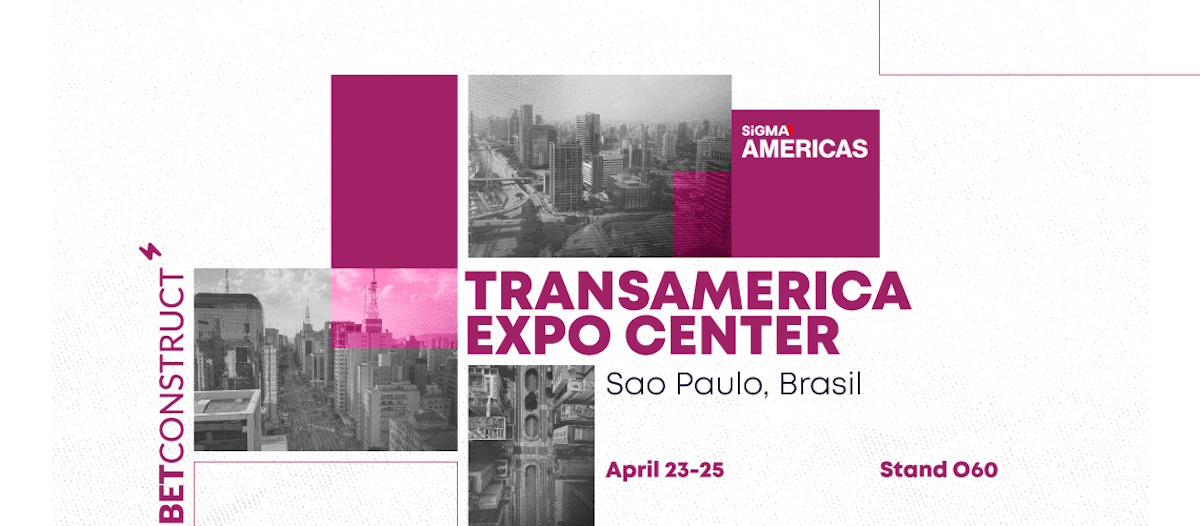
BetConstruct, a leading company in iGaming technology and services, is heading to Sigma Americas in Sao Paulo, Brazil from April 23-25, 2024.
Sigma Americas is a major event focusing on iGaming with 10,000 delegations and more than 200 professional speakers. This event serves as an exceptional platform for participants to present their innovative offerings, engage with fellow industry leaders, and establish new business relationships.
BetConstruct is poised to introduce its cutting-edge products and solutions to the growing Brazilian market at the upcoming event. As a premier provider of online iGaming solutions, the company will showcase its comprehensive range of services to all attendees, offering diverse solutions tailored to meet their specific needs and preferences.
Moreover, BetConstruct will demonstrate its newest Spettacolare offer by Mr. First, which is a fleeting opportunity to maximise user profits and explore the potential of FTN.
Attendees of the event can find BetConstruct in the Transamerica Expo Center at Stand O60, where they will have the opportunity to gain a comprehensive understanding of BetConstruct’s products and solutions.
-

 Latest News4 days ago
Latest News4 days agoXpoint Launches Groundbreaking New Capability to Reduce Geolocation Costs for Operators
-

 Latest News5 days ago
Latest News5 days agoFBMDS, Planet Invest and EverPlay Score a Fantastic Goal in a Revolutionary Partnership Involving Ronaldinho Gaucho
-
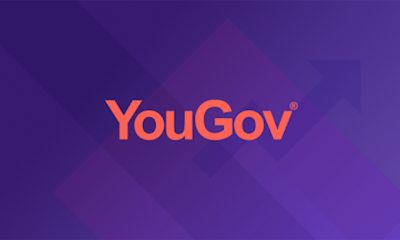
 Press Releases3 days ago
Press Releases3 days agoYouGov unveils US bettor research report, which highlights that 43% of sports bettors use three or more sportsbook apps
-

 Compliance Updates5 days ago
Compliance Updates5 days agoHub88 granted supplier licence in Peru
-

 Cryptocurrency2 days ago
Cryptocurrency2 days agoBitLine Enhances Onboarding Experience in Collaboration with Jumio: Simplified KYC for Casino Patrons
-

 Gambling in the USA5 days ago
Gambling in the USA5 days agoGames Global Launches Custom Slot Game Caesars Palace Frenzy with Caesars Digital
-

 Latest News3 days ago
Latest News3 days agoSCCG Announces Strategic Partnership with Comm100 to Enhance Player Engagement with Leading Customer Support Solutions
-

 Latest News5 days ago
Latest News5 days agoXtremepush boosts Brazilian presence with Weebet platform deal




